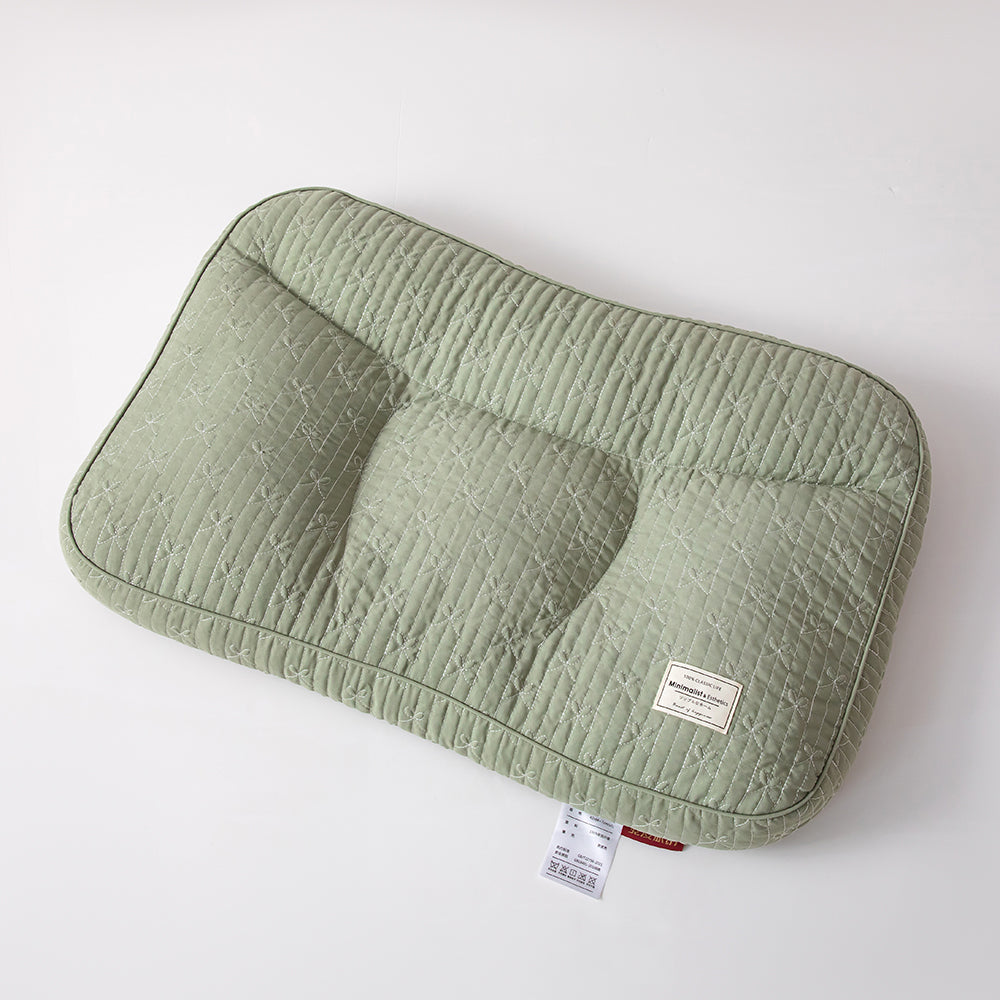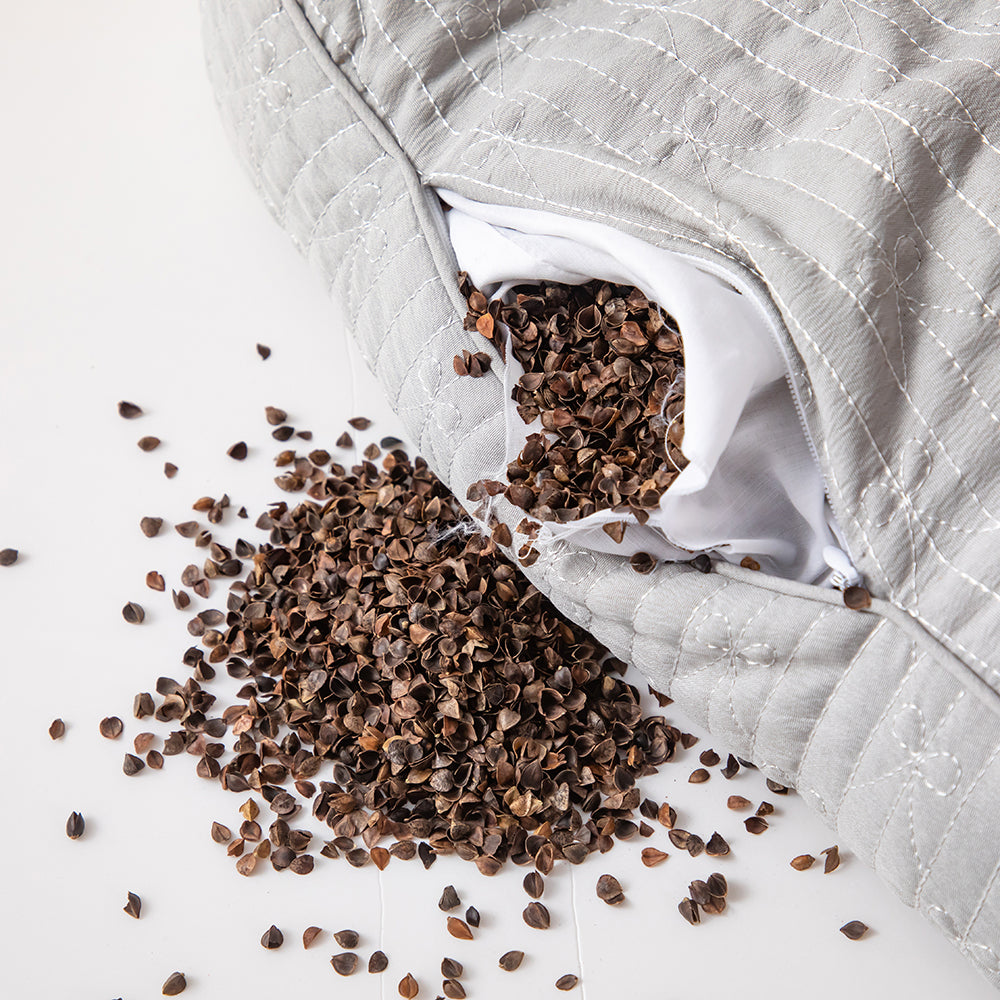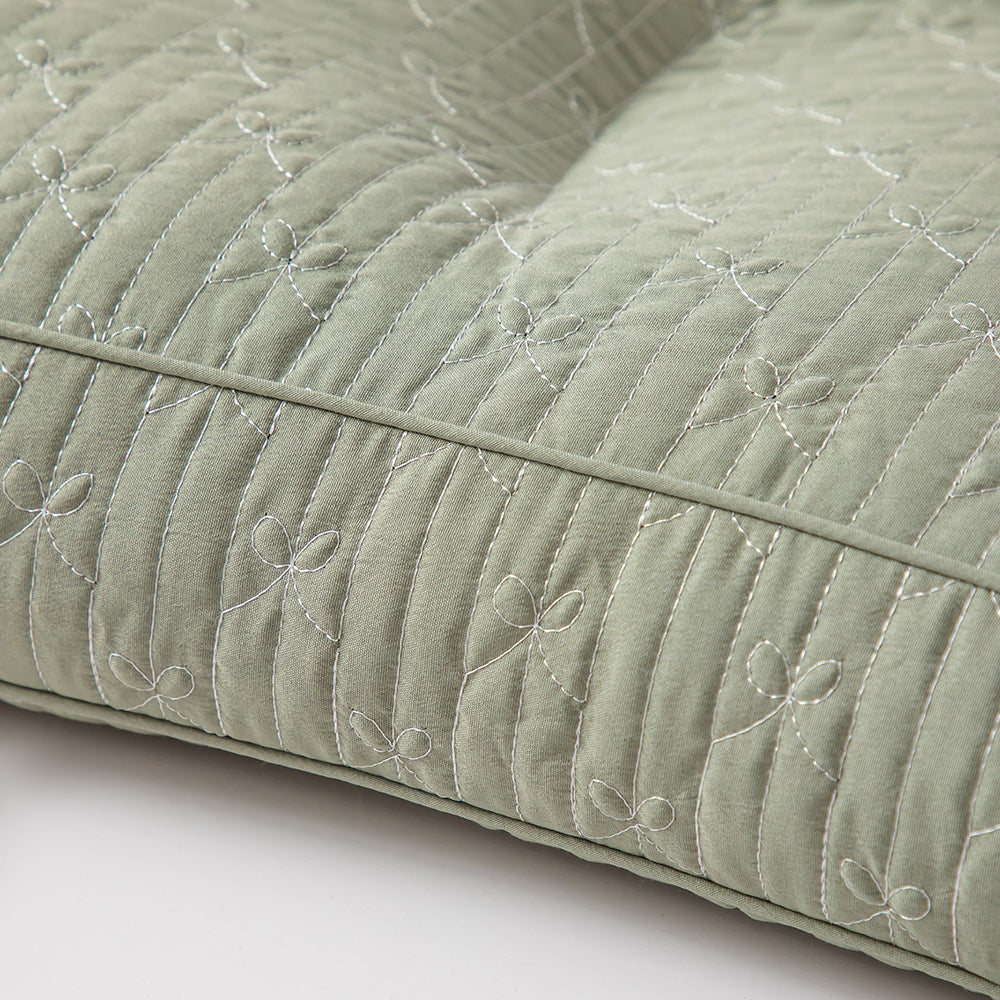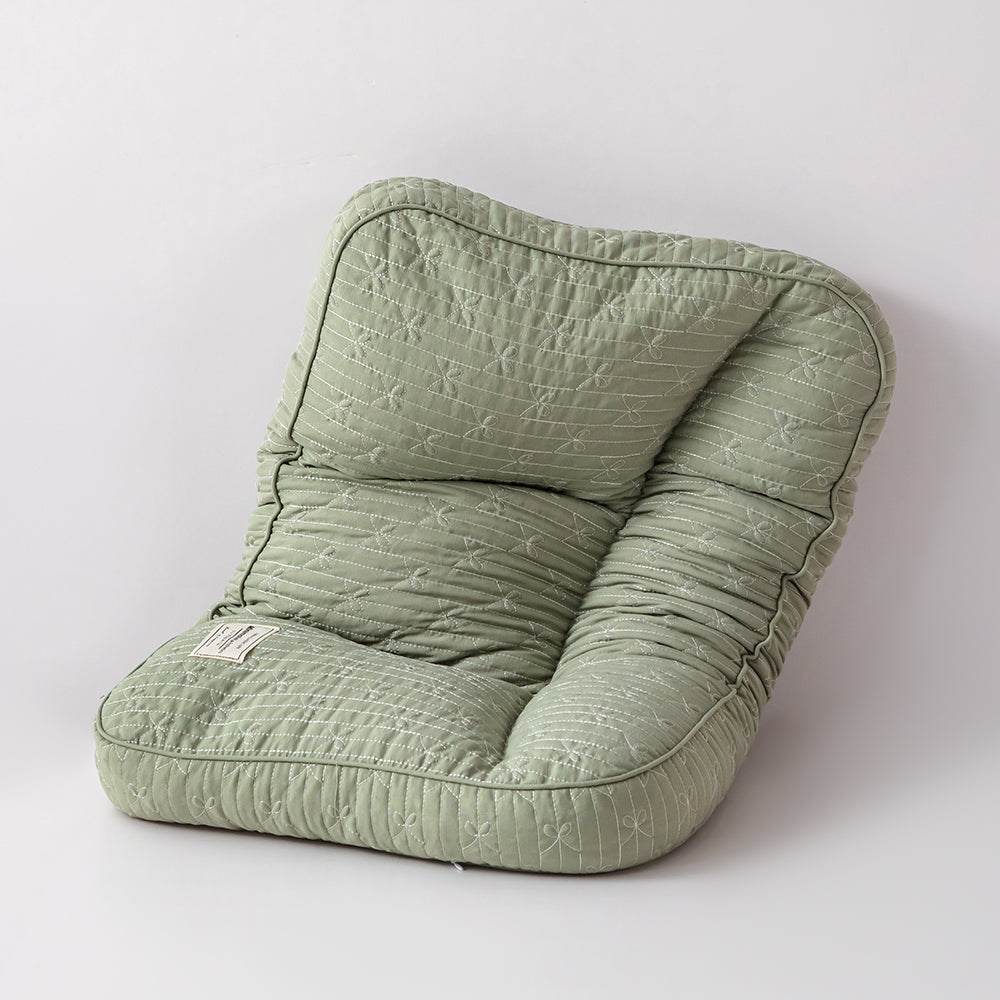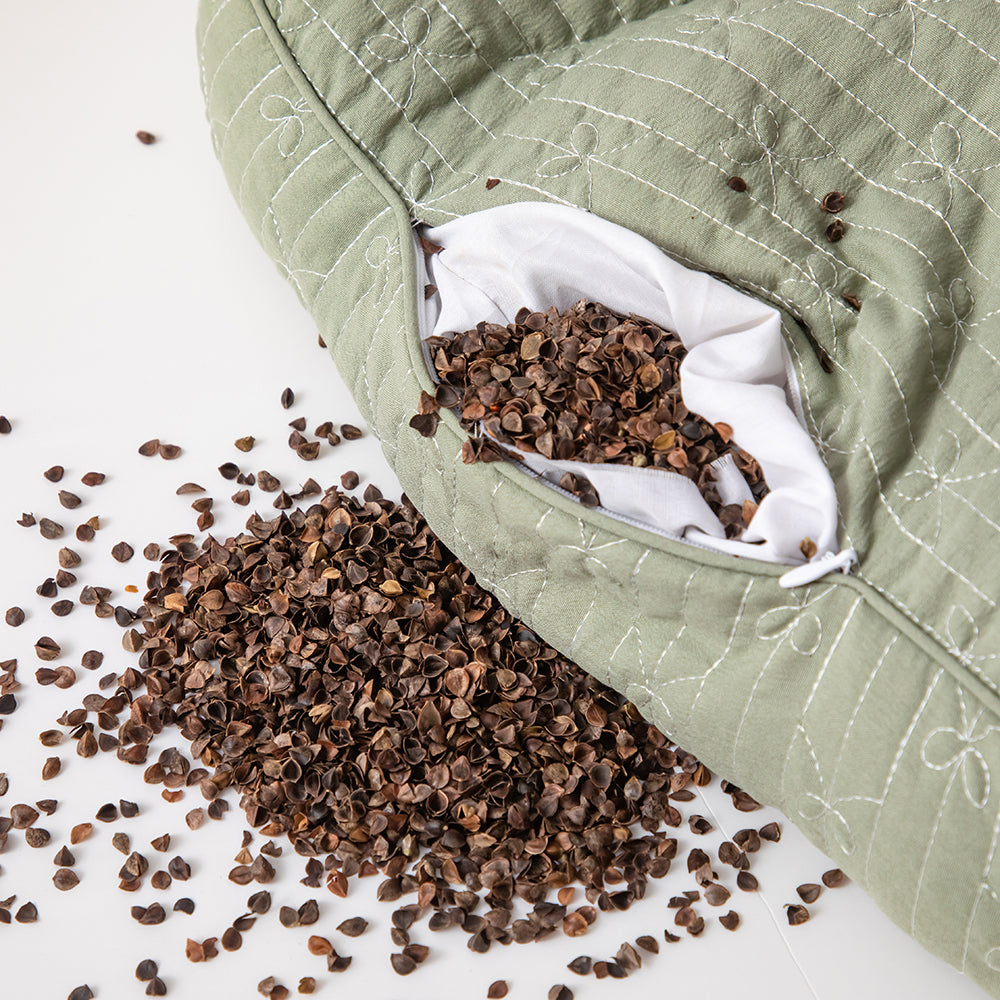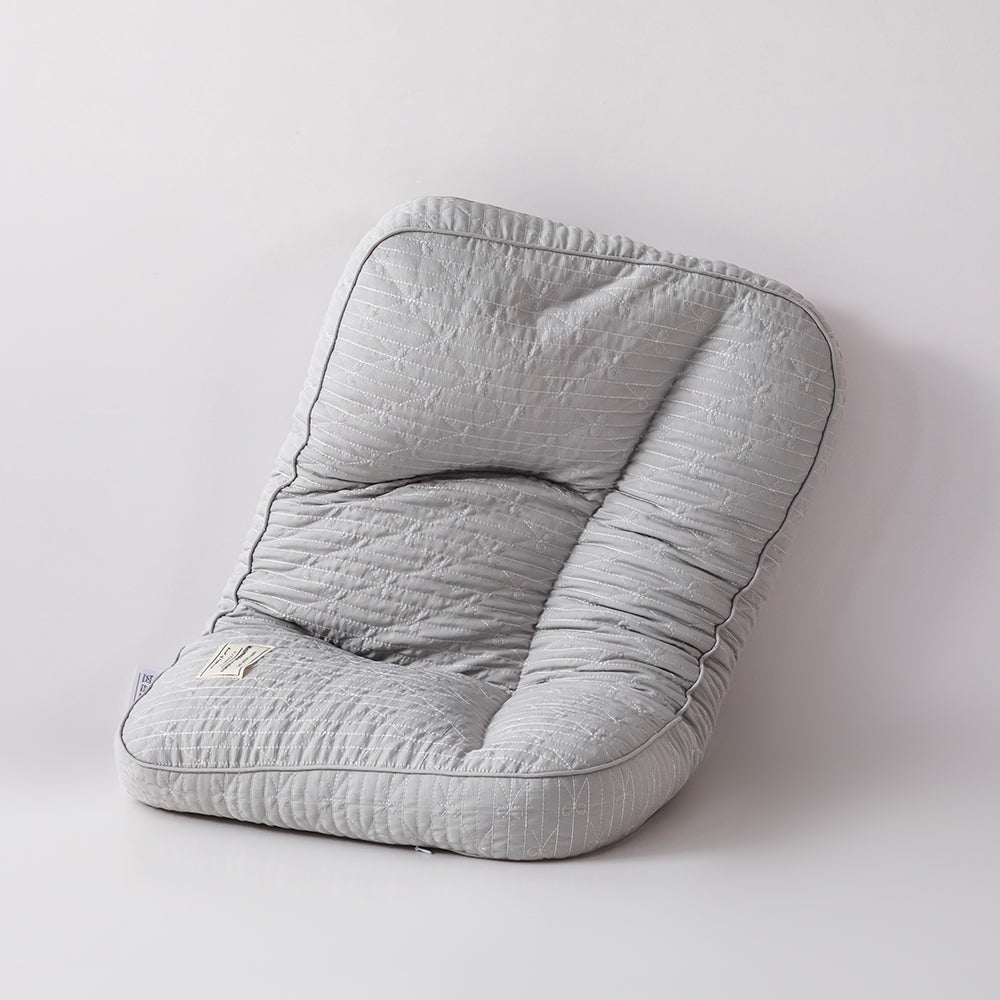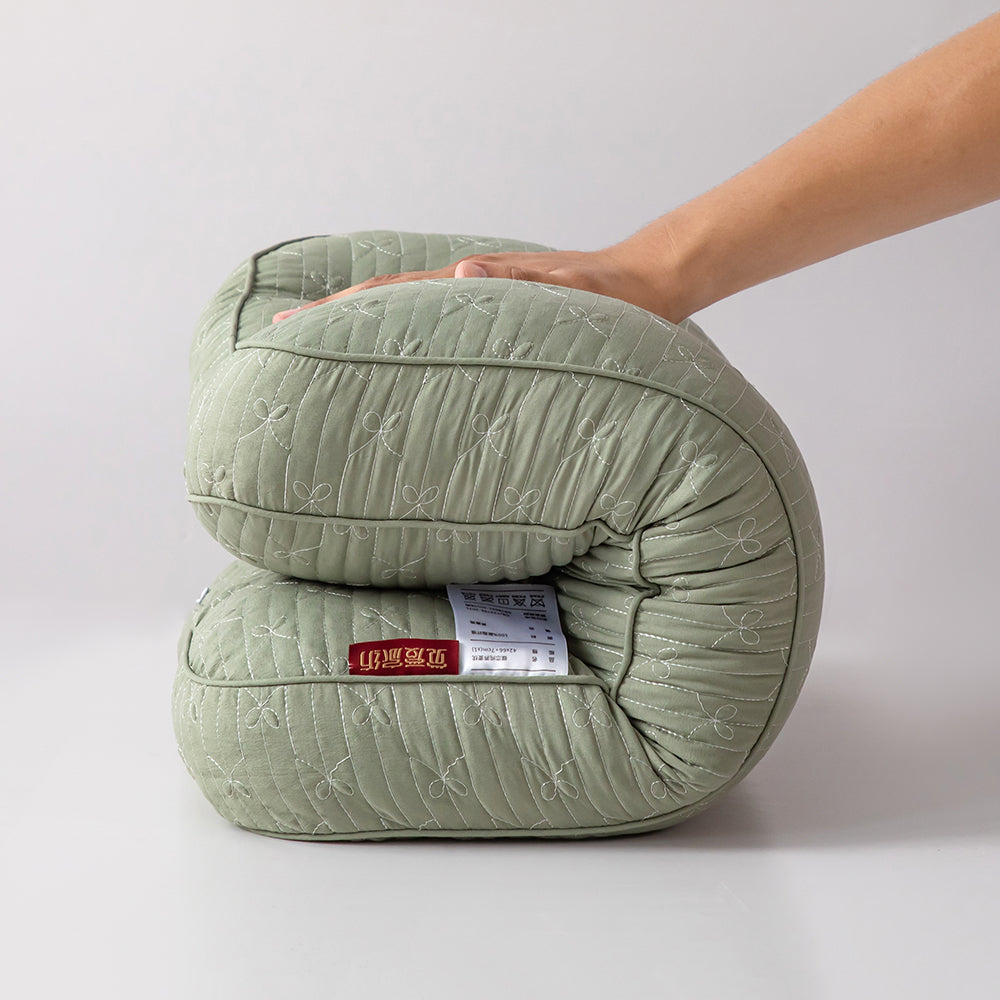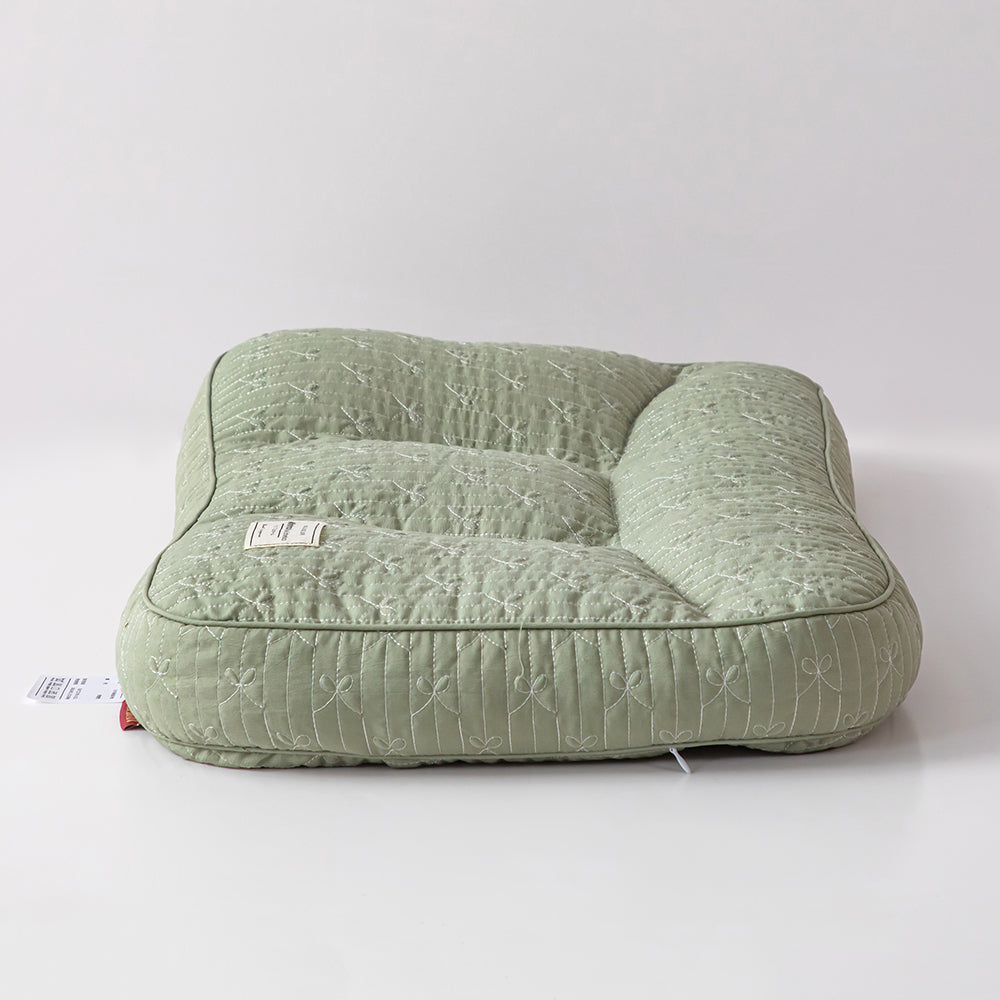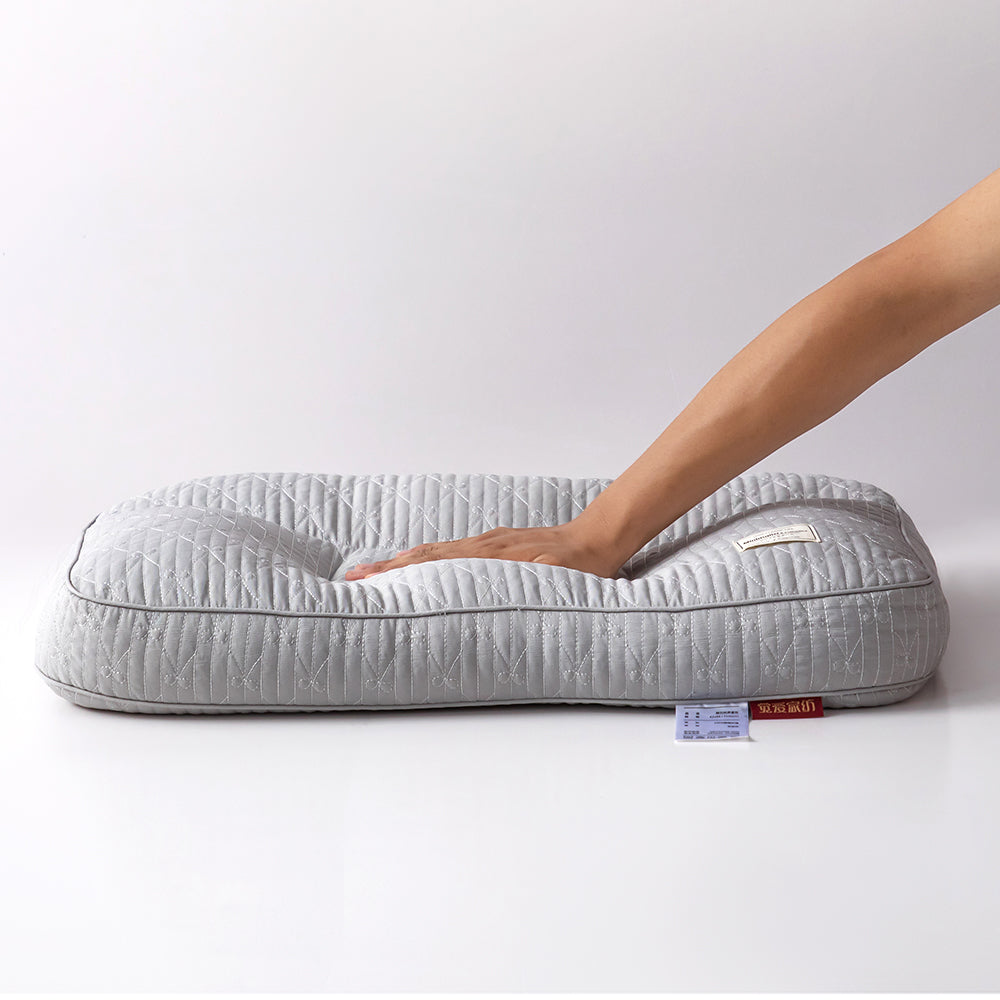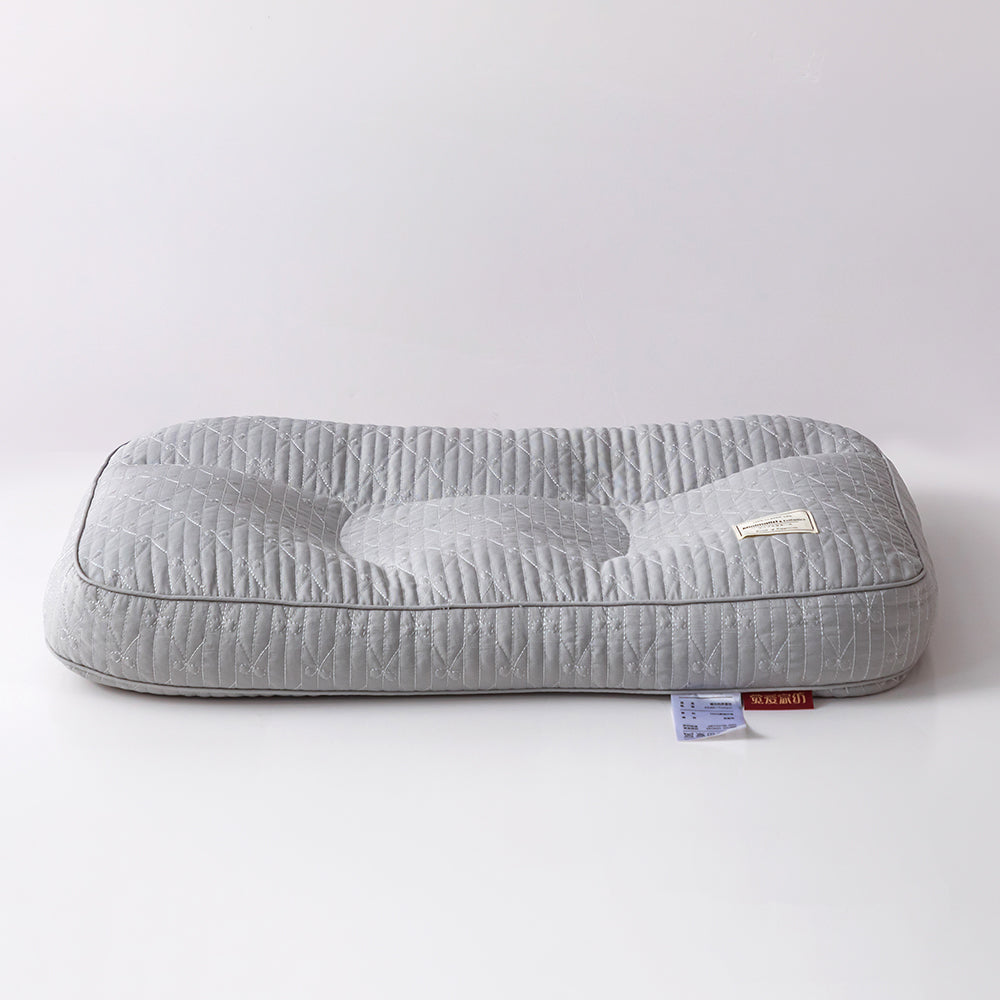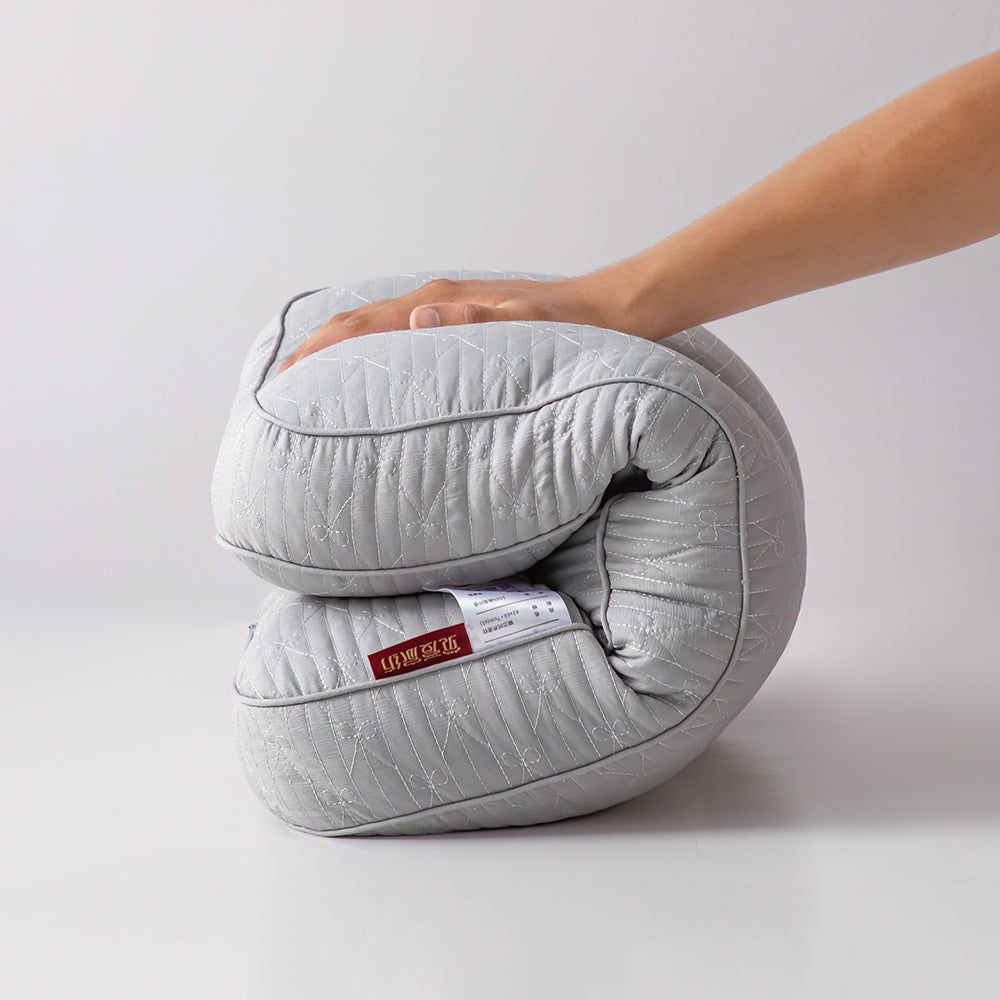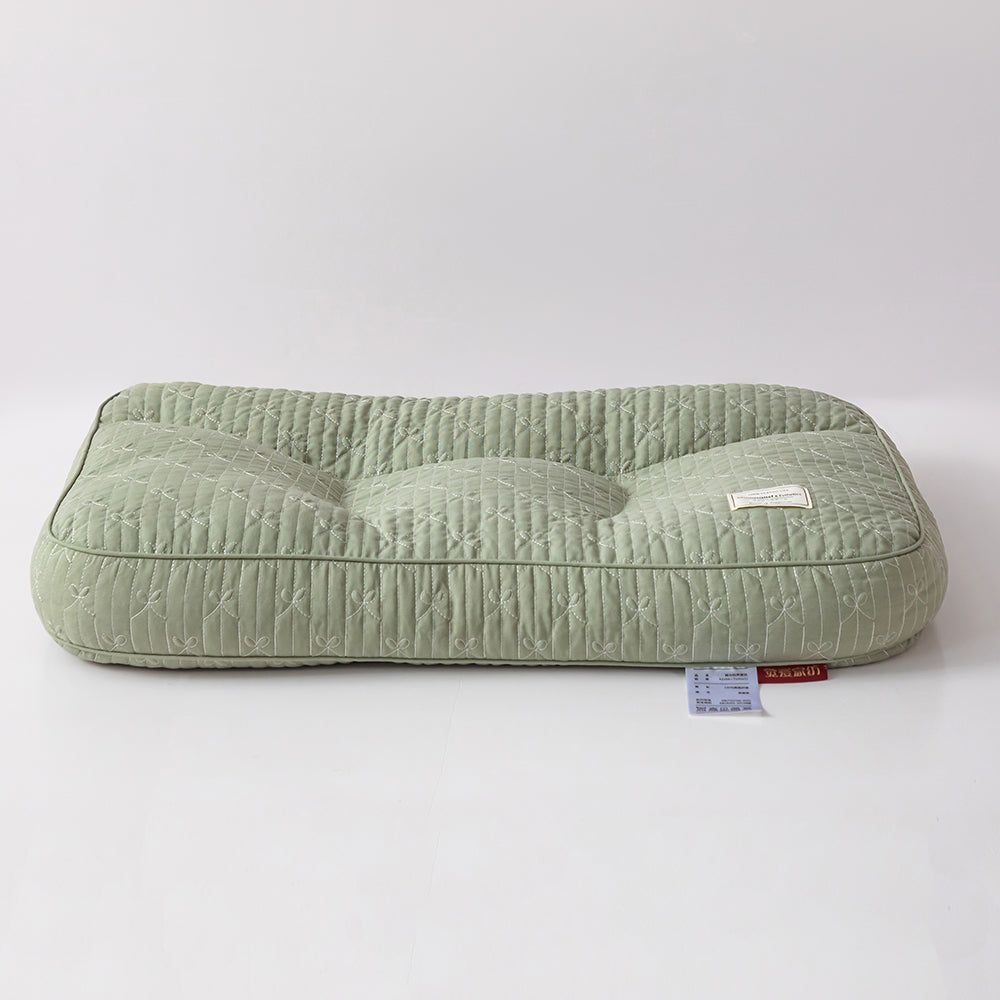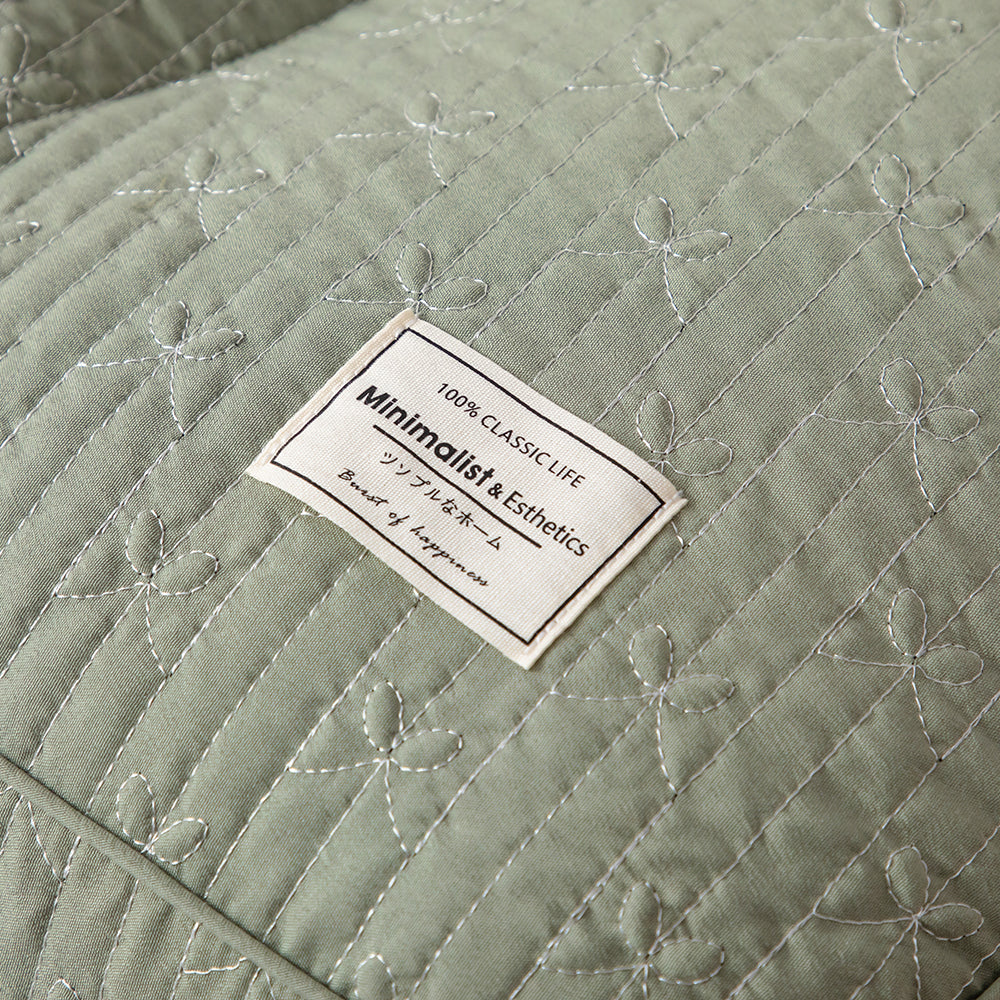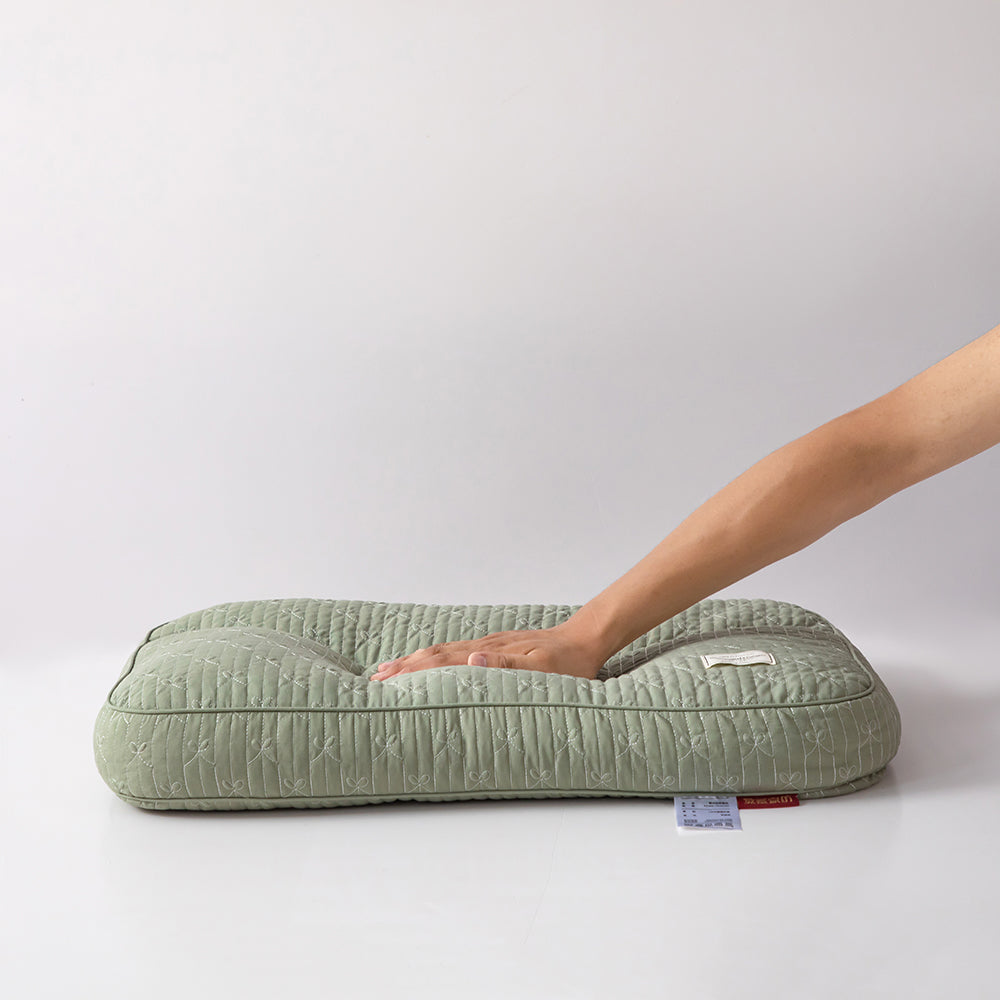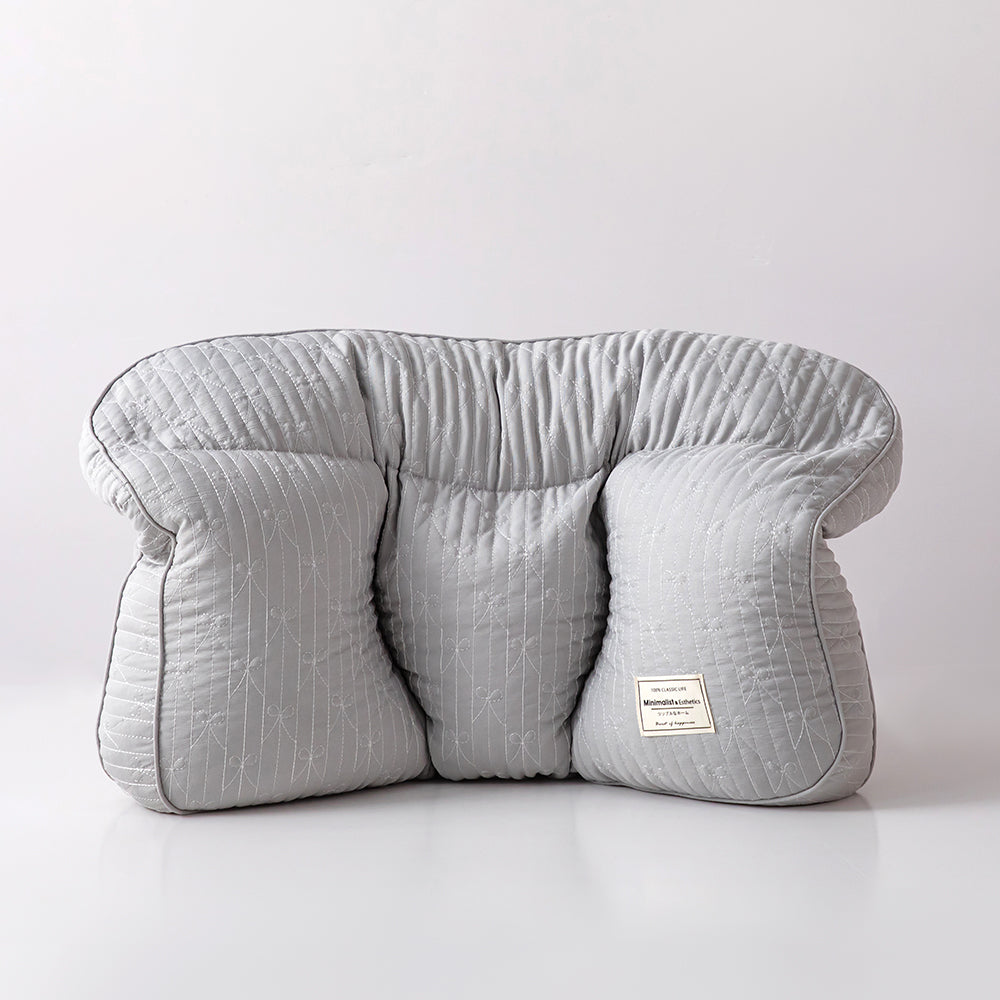Best buckwheat husk pillow benefits your healthy (MOQ 30 PCS)
Best buckwheat husk pillow benefits your healthy (MOQ 30 PCS)
The Benefits of Buckwheat Husk Pillows: A Scientific Perspective
Buckwheat husk pillows, a traditional bedding option with modern appeal, offer multiple health and comfort benefits supported by scientific research. Derived from the outer shells of Fagopyrum esculentum (common buckwheat), these pillows are increasingly recognized for their ergonomic, thermoregulatory, and bioactive properties. Below is an evidence-based analysis of their advantages:
-
Superior Ergonomic Support
Buckwheat husks are naturally firm yet moldable, allowing the pillow to conform to the head and neck contours. This adaptability reduces pressure points and supports spinal alignment, which is critical for preventing musculoskeletal strain. A study published in the Journal of China Fiber Inspection highlighted that buckwheat husk fillings meet stringent quality standards for cushioning products, emphasizing their durability and ability to maintain structural integrity over time1. -
Enhanced Airflow and Temperature Regulation
The porous structure of buckwheat husks facilitates airflow, preventing heat retention—a common issue with synthetic pillows. This thermoregulatory property helps maintain a cool sleeping environment, which is linked to improved sleep quality. Research on buckwheat protein structures further supports its breathability, noting that high-moisture extrusion processing (used in some husk treatments) enhances porosity and moisture-wicking capabilities3. -
Antioxidant and Anti-Inflammatory Properties
Buckwheat husks contain bioactive compounds such as flavonoids (e.g., rutin and quercetin), which exhibit antioxidant and anti-inflammatory effects. A 2016 study in Food Chemistry demonstrated that tartary buckwheat sprouts treated with sodium bicarbonate showed elevated flavonoid levels, enhancing their radical-scavenging activity2. While direct studies on husk pillows are limited, the presence of these compounds suggests potential benefits for skin health and reduced oxidative stress during prolonged contact. -
Hypoallergenic and Dust Mite Resistance
Unlike feather or synthetic pillows, buckwheat husks are naturally resistant to dust mites and microbial growth due to their low moisture retention and dense structure. This makes them ideal for allergy sufferers. A randomized controlled trial published in Diabetes Research and Clinical Practice noted that buckwheat-based products, including fiber-enriched pasta, are associated with reduced inflammatory markers, indirectly supporting their hypoallergenic profile8. -
Sustainability and Longevity
Buckwheat husks are an agricultural byproduct, aligning with eco-friendly practices. Their durability reduces the need for frequent replacements, as highlighted in a 2024 editorial in Frontiers in Plant Science, which emphasized underutilized crops like buckwheat for sustainable material applications9.
Conclusion
Buckwheat husk pillows combine ergonomic design, natural thermoregulation, and bioactive benefits, making them a scientifically backed choice for improved sleep and health. While further clinical studies on direct health impacts are needed, existing research on buckwheat’s physicochemical properties and bioactive compounds underscores its potential. Renowned journals such as Food Chemistry and Food Research International validate these findings, reinforcing the credibility of buckwheat husk as a multifunctional bedding material.

Product features
Product features
Materials and care
Materials and care
Merchandising tips
Merchandising tips
Share
